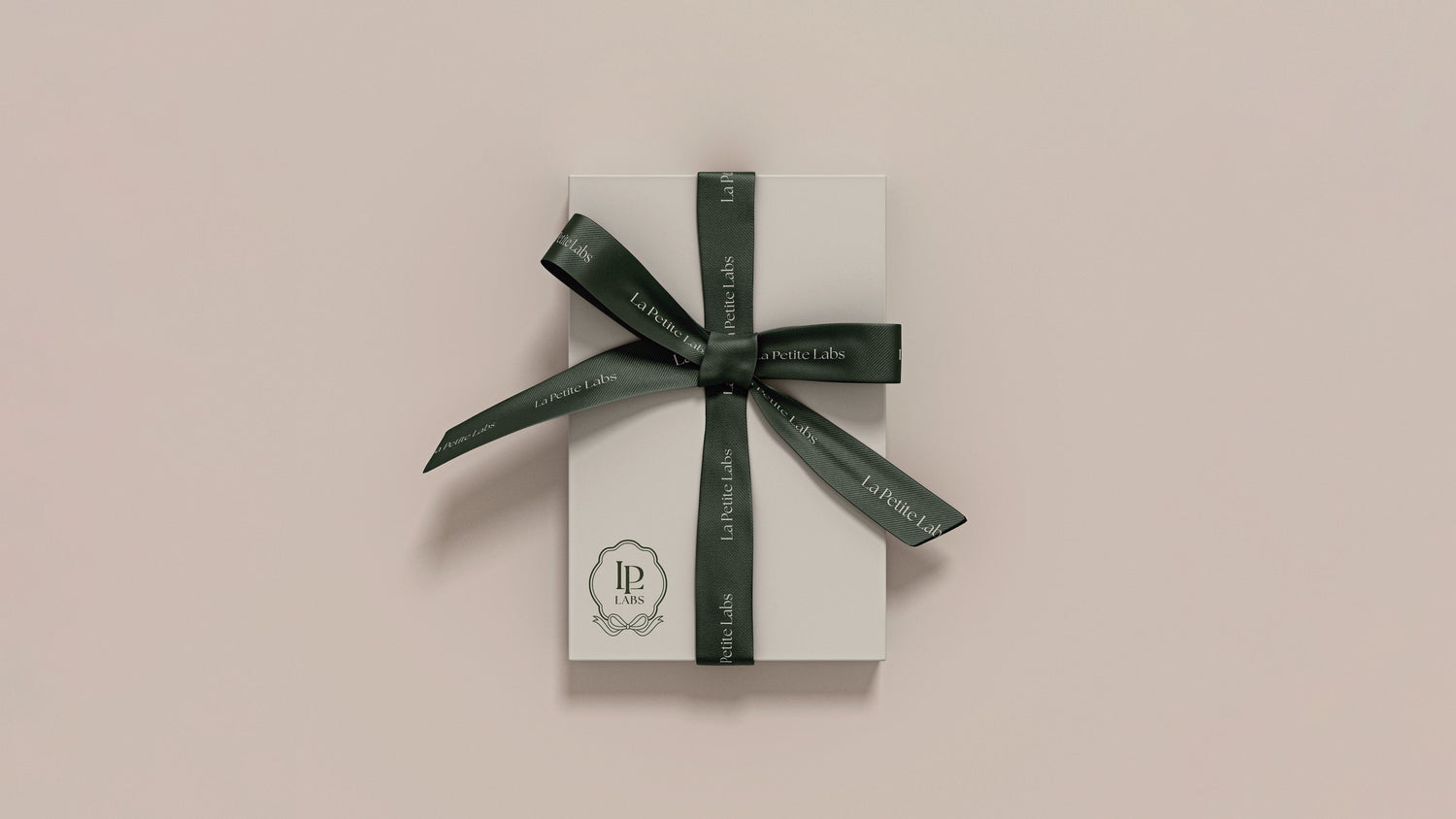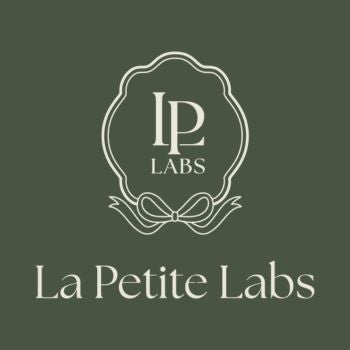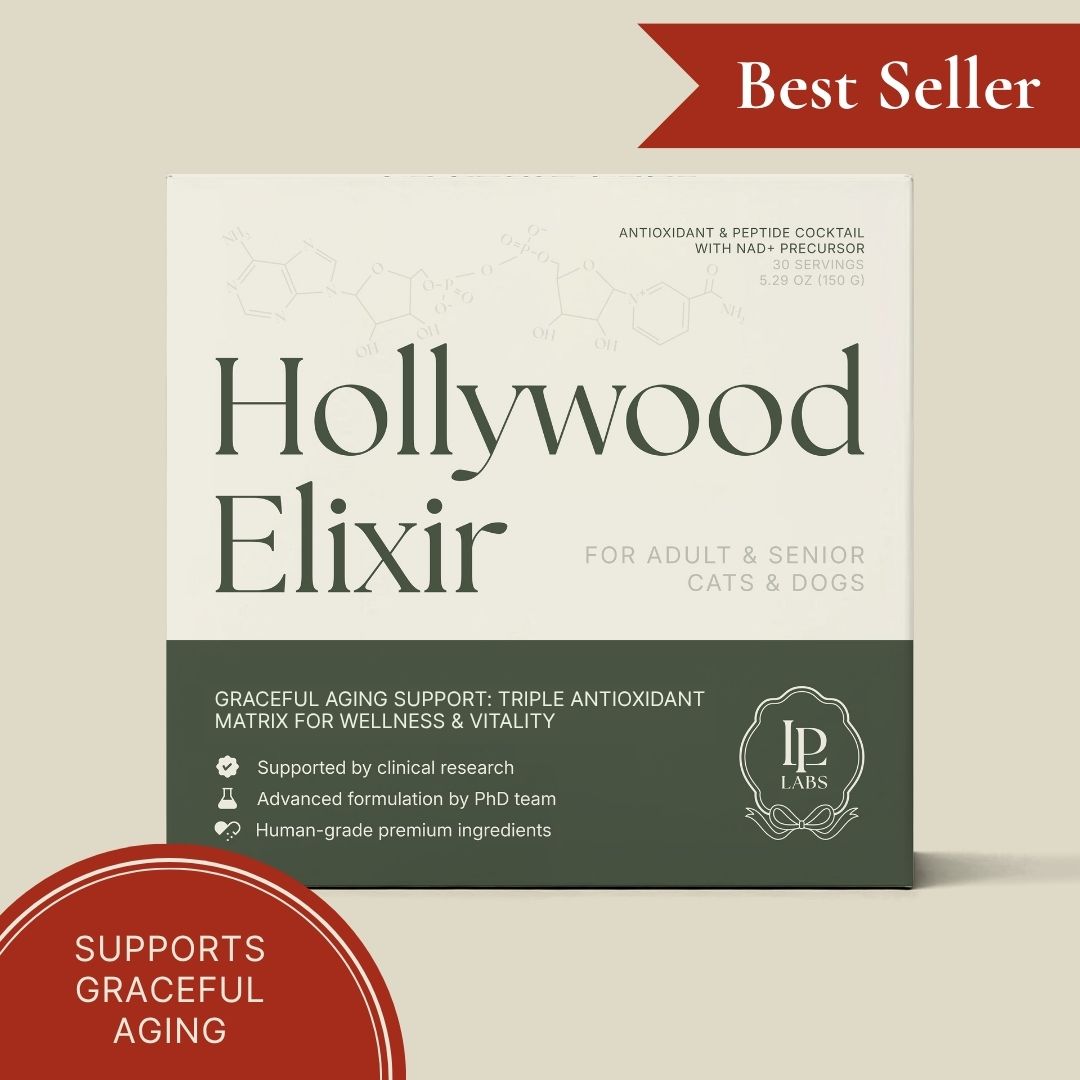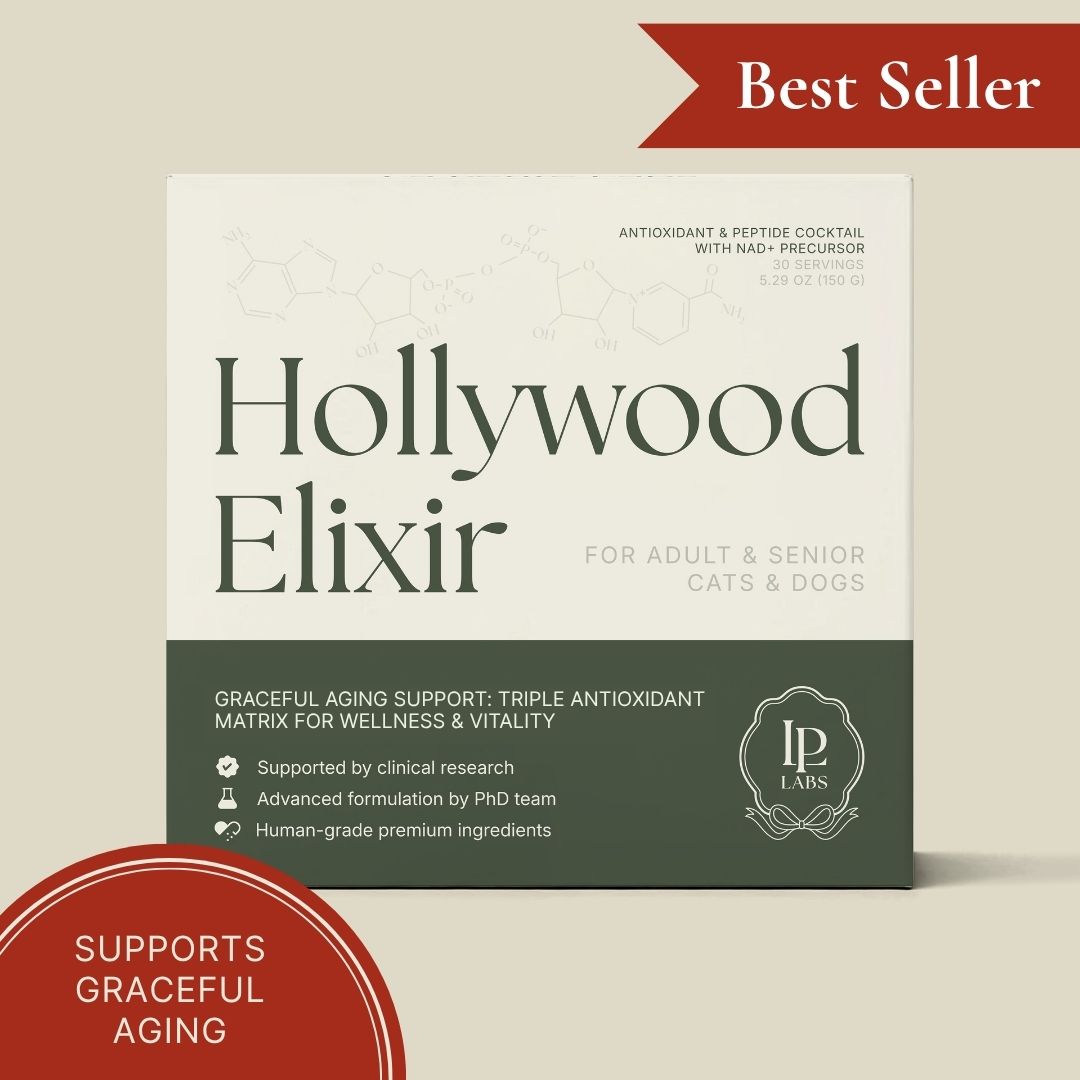5K+ Happy Pet Parents
Excellent 4.8
Carotenoids for Dogs – Inflammation, Skin, and Eye Support | La Petite Labs | Hollywood Elixir™
"He seems more happy overall. I've also noticed he has more energy which makes our walks and playtime so much more fun."
Olga & Jordan
"He's got way more energy now! We go on runs pretty often; he use to get tired halfway through, but lately, he's been keeping up without any problem."
Cami & Clifford
"I want her to live forever. She hasn't had an ear infection since!"
Madison & Azula
"It helps with her calmness, her immune system. I really like the clean ingredients. Highly recommend La Petite Labs!"
Maple & Cassidy
"He seems more happy overall. I've also noticed he has more energy which makes our walks and playtime so much more fun."
Olga & Jordan
"He's got way more energy now! We go on runs pretty often; he use to get tired halfway through, but lately, he's been keeping up without any problem."
Cami & Clifford
"I want her to live forever. She hasn't had an ear infection since!"
Madison & Azula
"It helps with her calmness, her immune system. I really like the clean ingredients. Highly recommend La Petite Labs!"
Maple & Cassidy
"He seems more happy overall. I've also noticed he has more energy which makes our walks and playtime so much more fun."
Olga & Jordan
"He's got way more energy now! We go on runs pretty often; he use to get tired halfway through, but lately, he's been keeping up without any problem."
Cami & Clifford
"I want her to live forever. She hasn't had an ear infection since!"
Madison & Azula
"It helps with her calmness, her immune system. I really like the clean ingredients. Highly recommend La Petite Labs!"
Maple & Cassidy
"He seems more happy overall. I've also noticed he has more energy which makes our walks and playtime so much more fun."
Olga & Jordan
"He's got way more energy now! We go on runs pretty often; he use to get tired halfway through, but lately, he's been keeping up without any problem."
Cami & Clifford
"I want her to live forever. She hasn't had an ear infection since!"
Madison & Azula
"It helps with her calmness, her immune system. I really like the clean ingredients. Highly recommend La Petite Labs!"
Maple & Cassidy
SHOP NOW
Hollywood Elixir™
Graceful aging supplement for cats & dogs
More good years—starting now.
The daily supplement for cats and dogs designed to give you more time with them.
- Brings back playful energy and curiosity
- Keeps their joints, brain, and immune system strong
- Helps calm inflammation and supports recovery
- Promotes graceful, happy aging from the inside out
Formulated with 16 powerful anti-aging actives—including antioxidants, NAD+ precursors, Nrf2 activators, adaptogens, and superfoods.
 NSF® 3rd Party Tested
NSF® 3rd Party Tested
 Vet-Formulated
Vet-Formulated
 Clinically Backed
Clinically Backed
 Human-Grade Ingredients
Human-Grade Ingredients
 Zero Fillers
Zero Fillers
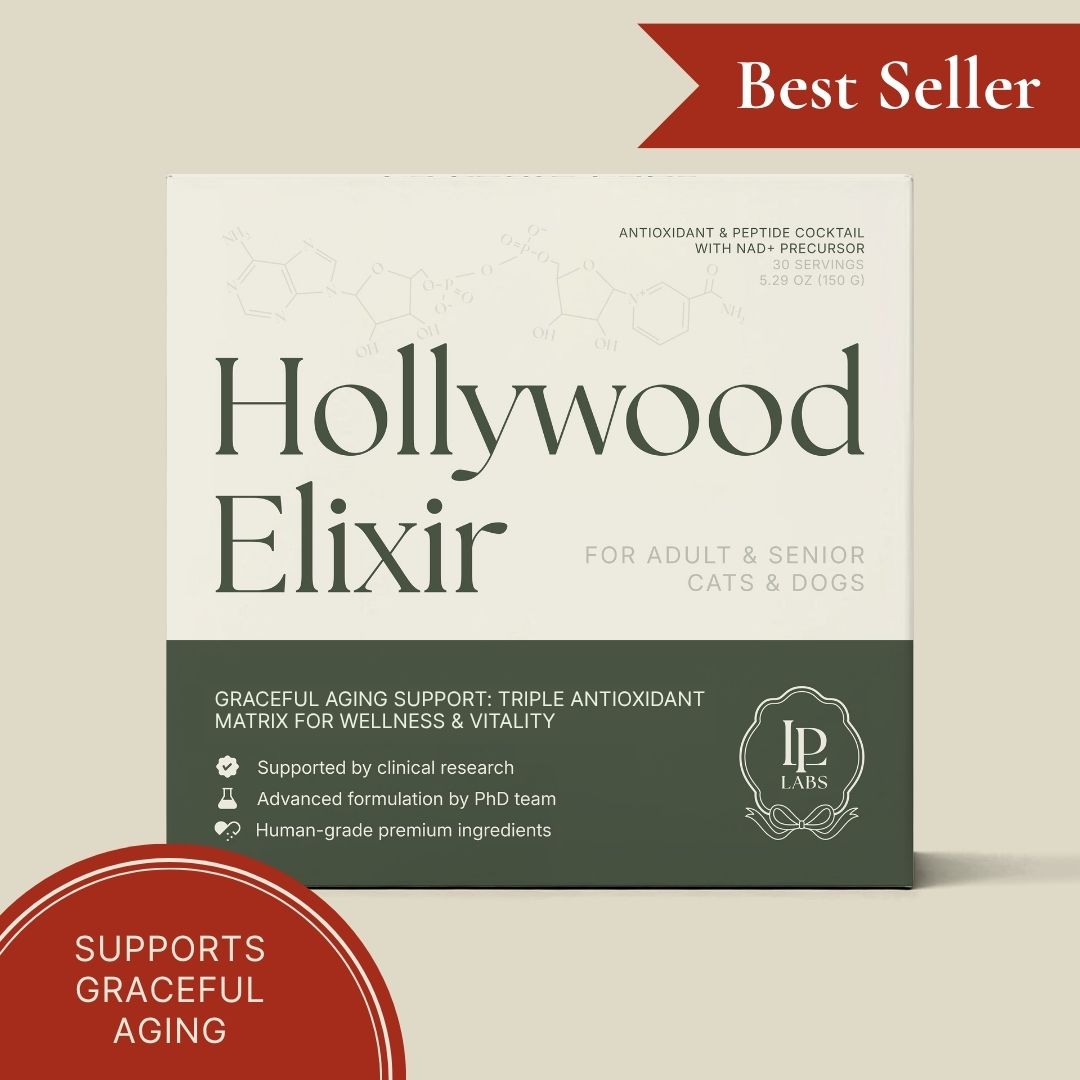
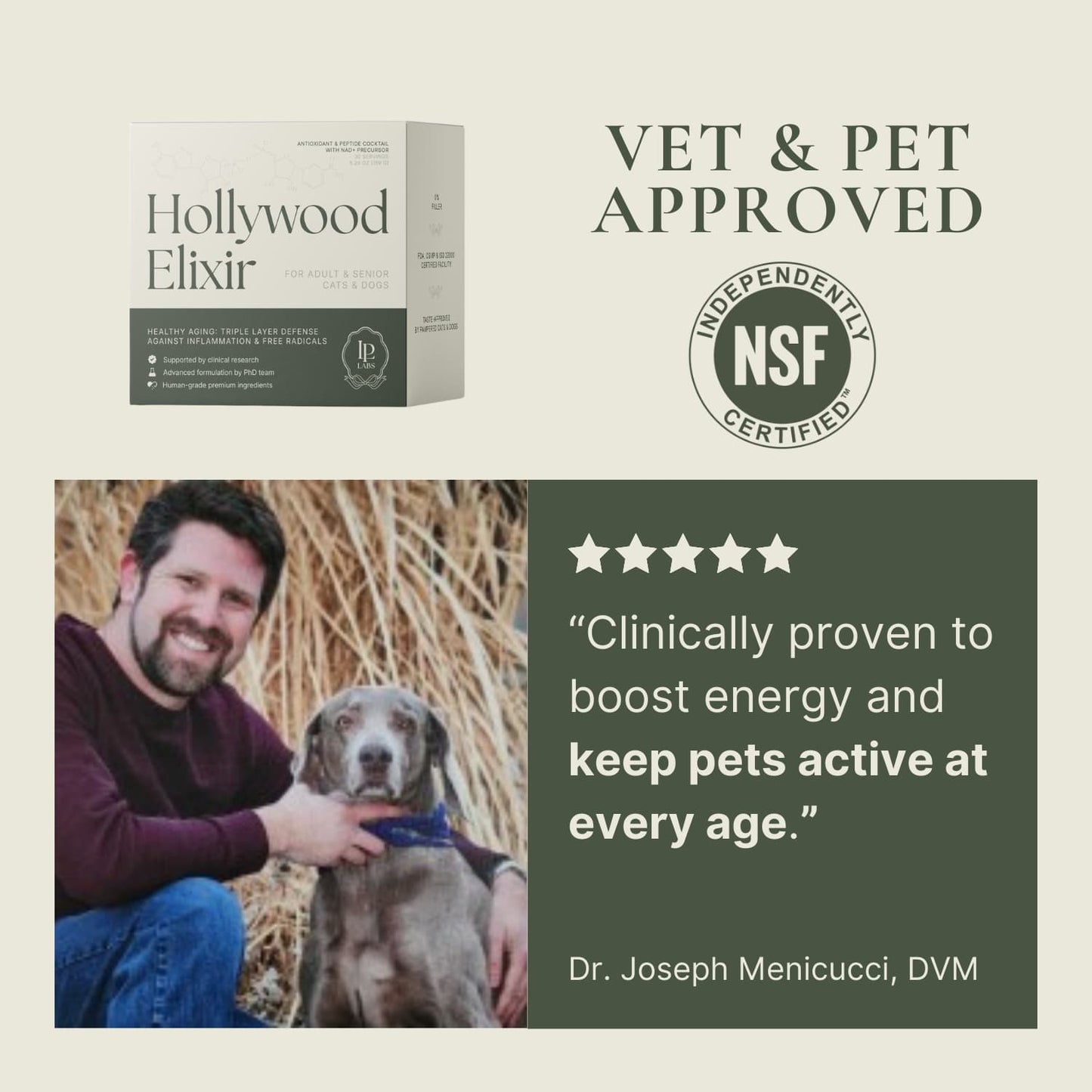
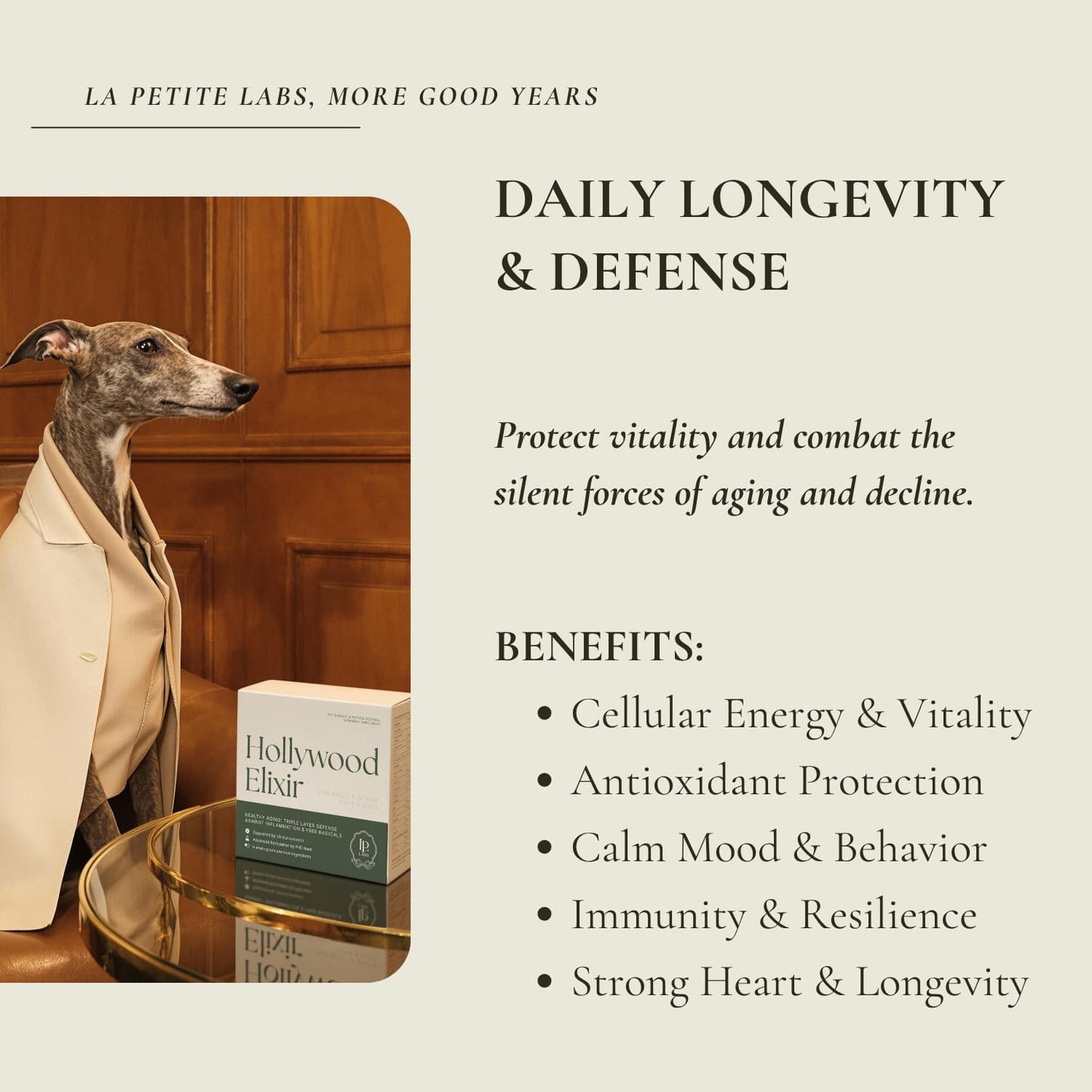
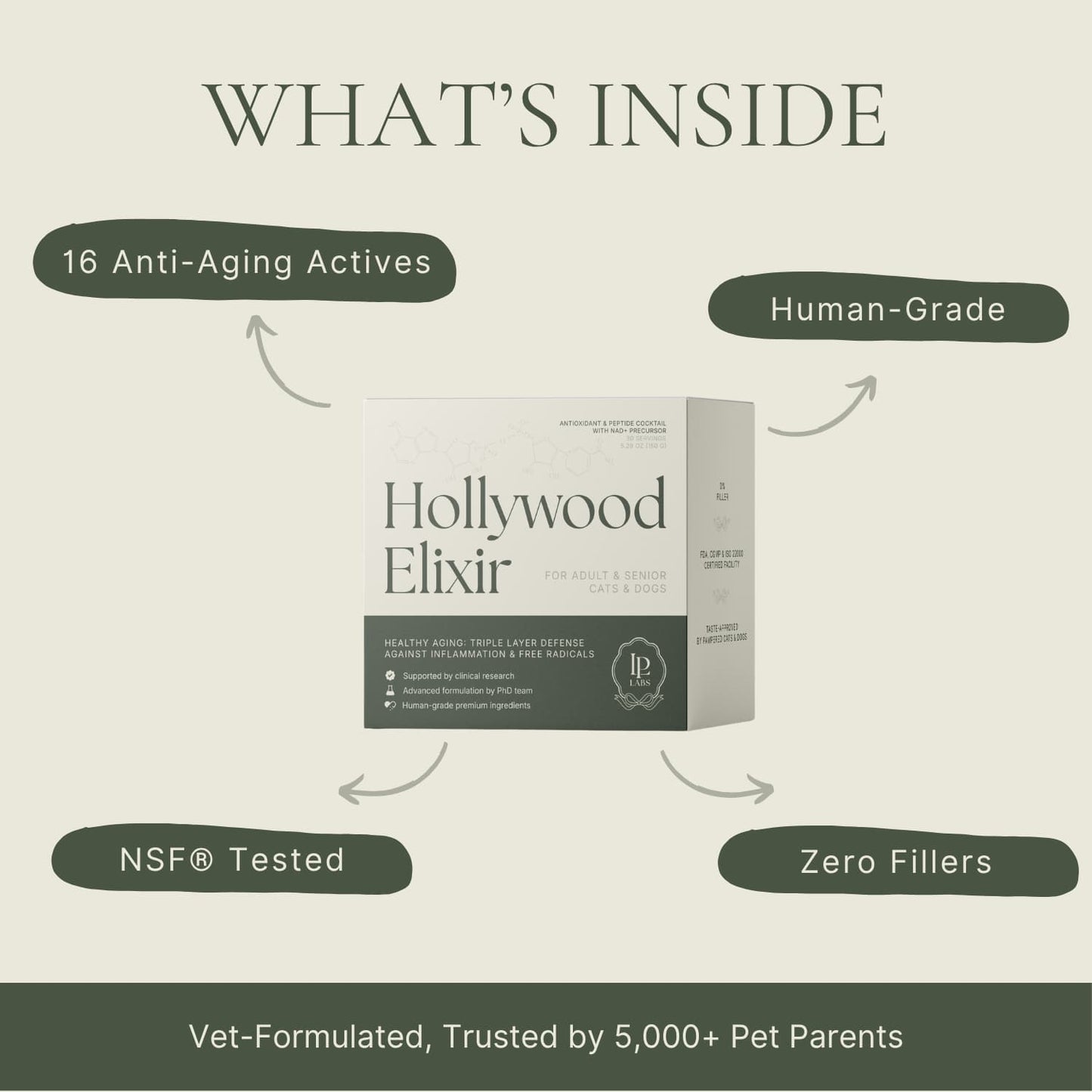
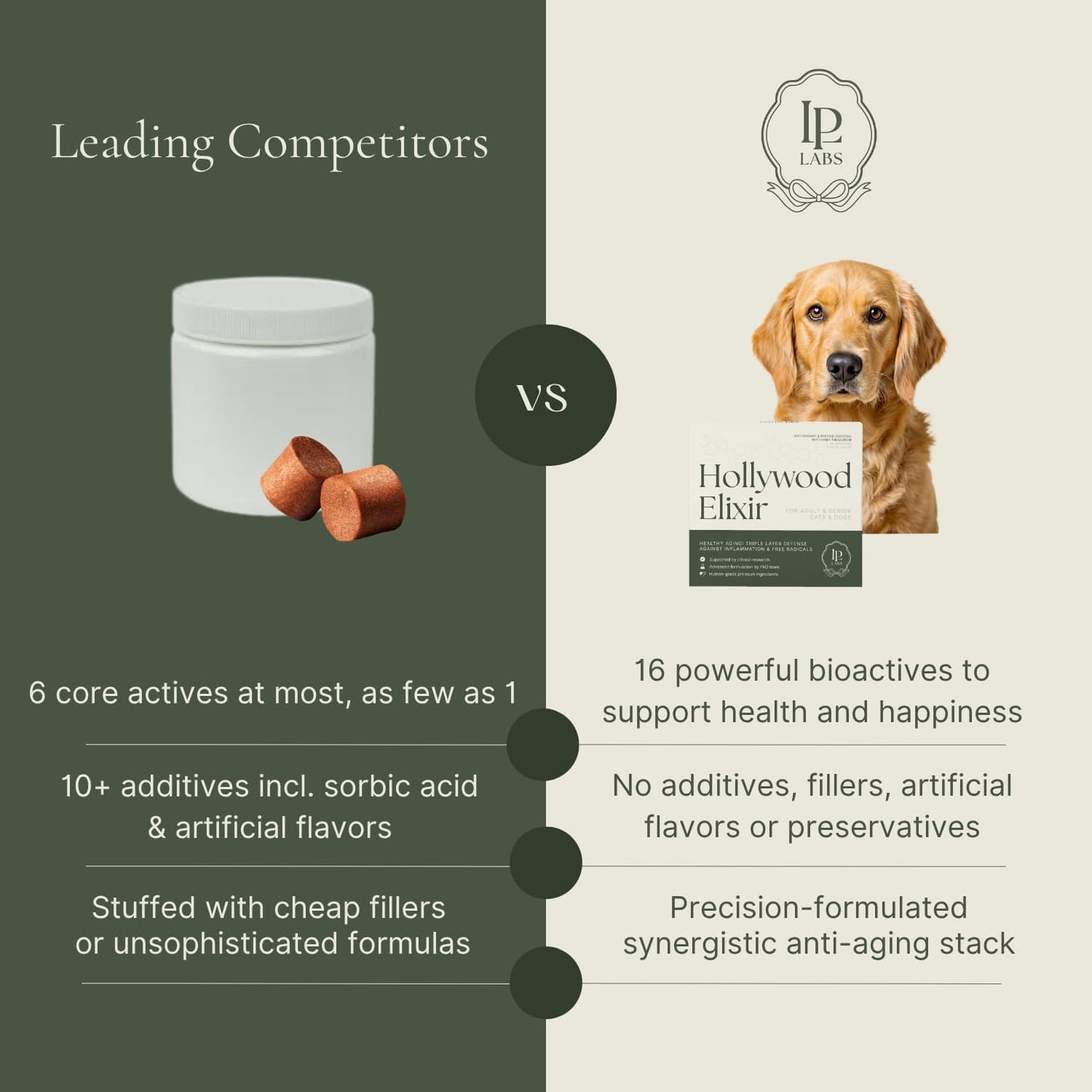
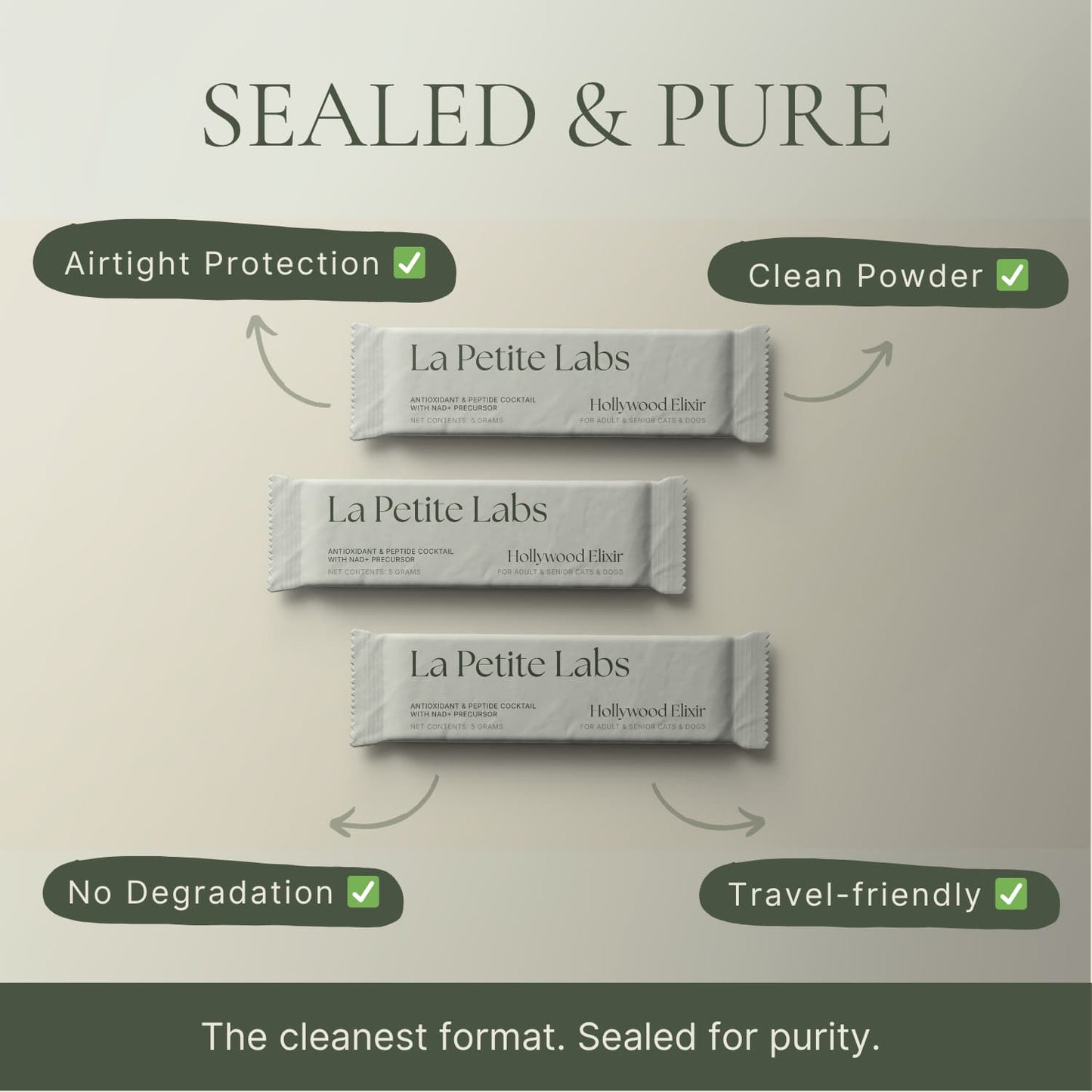

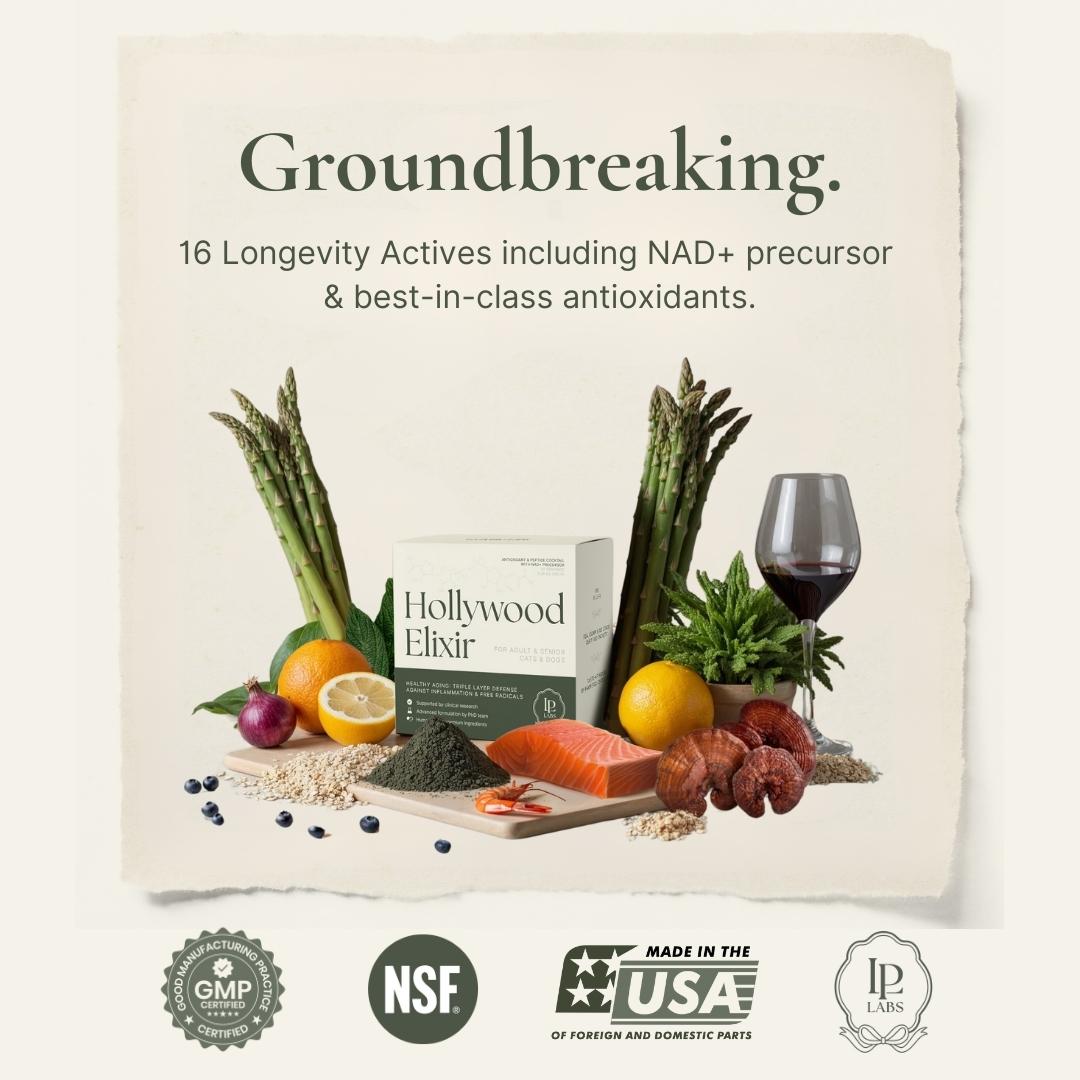
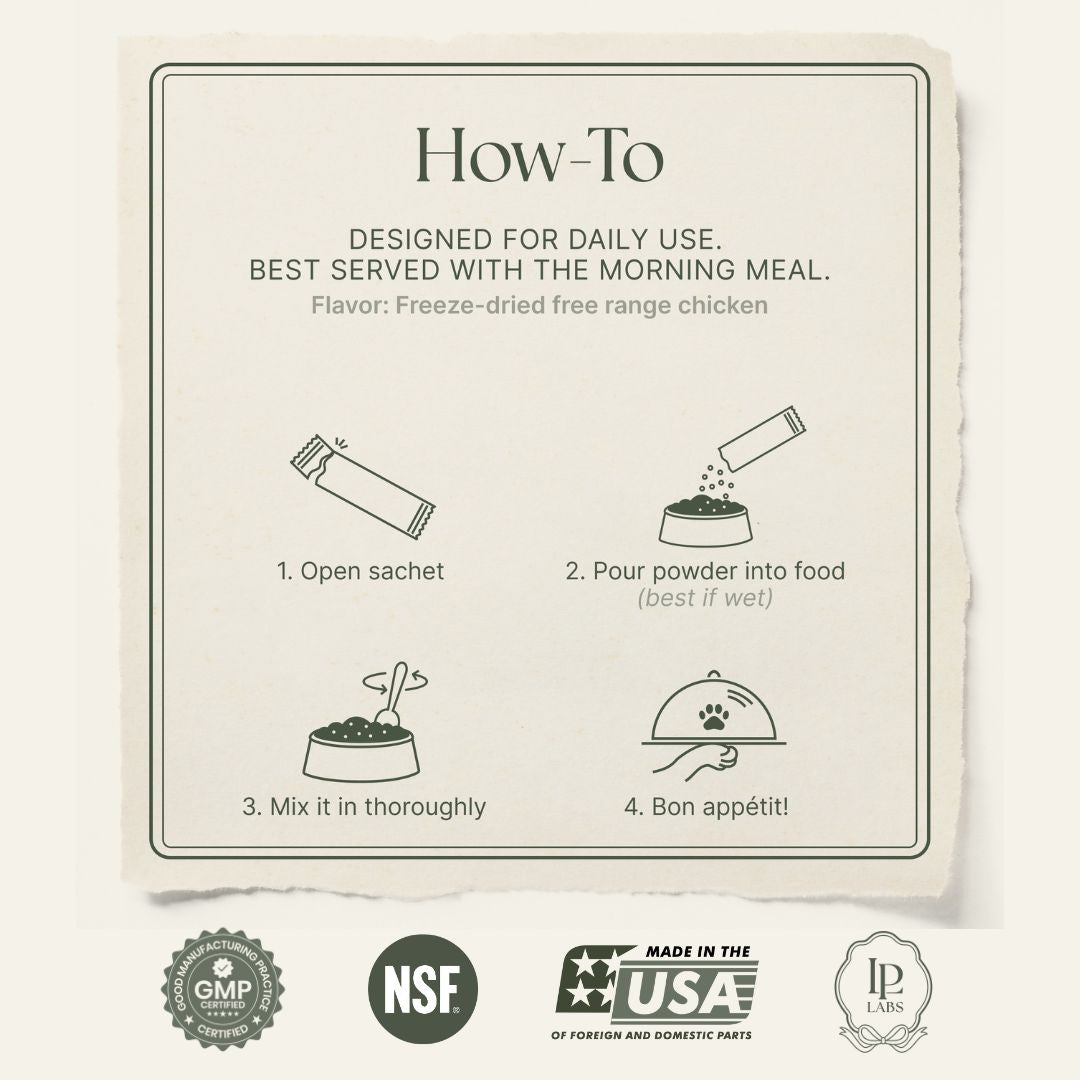
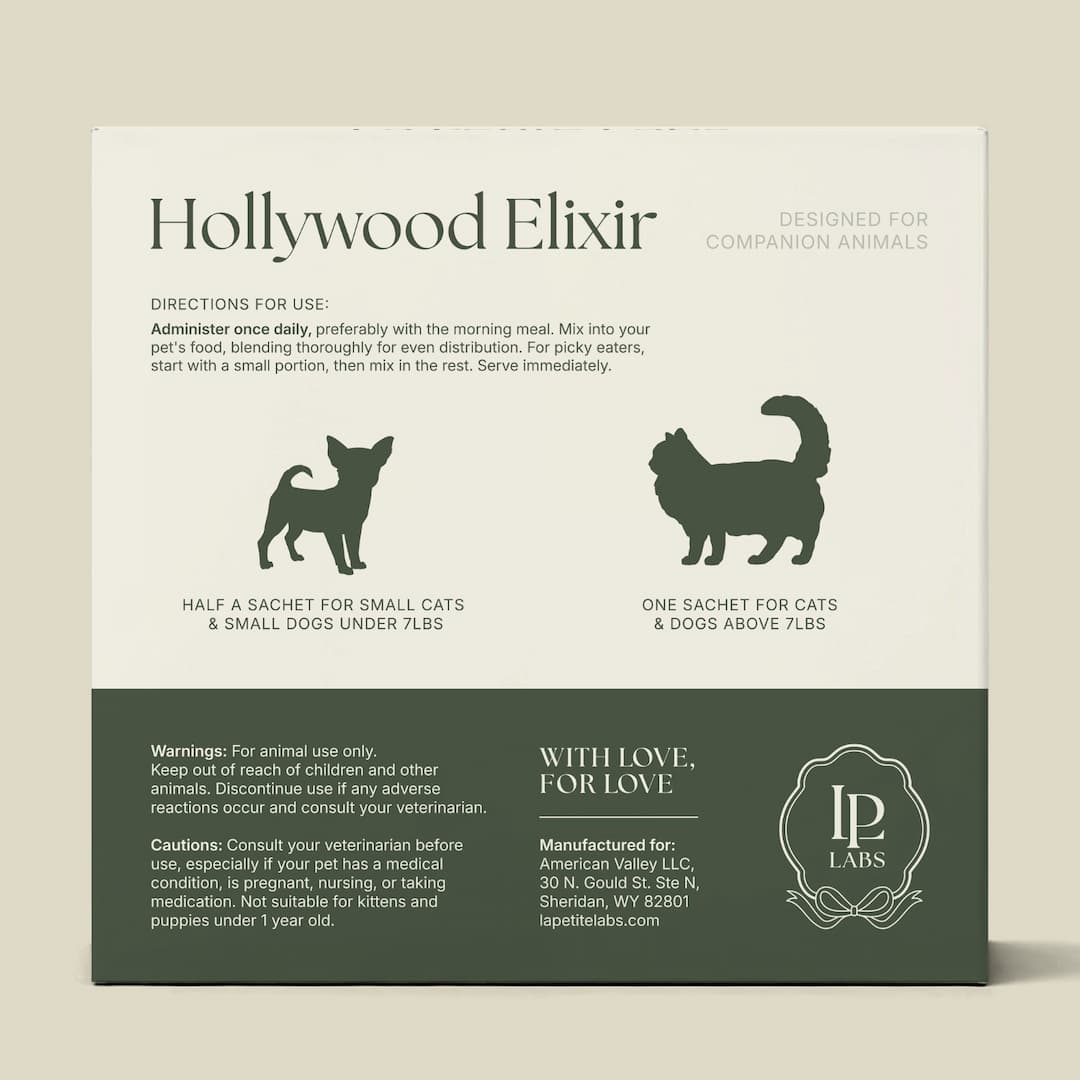
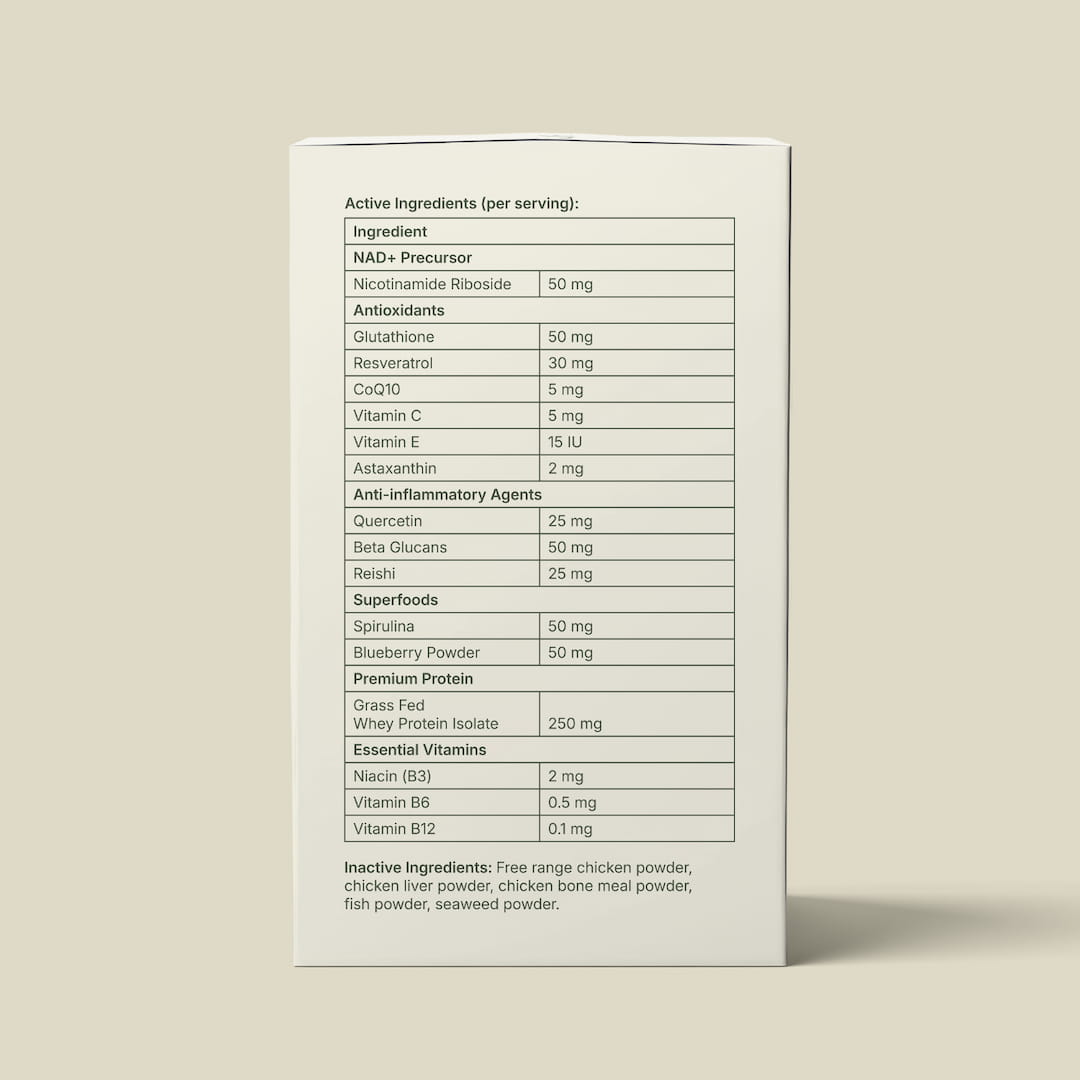
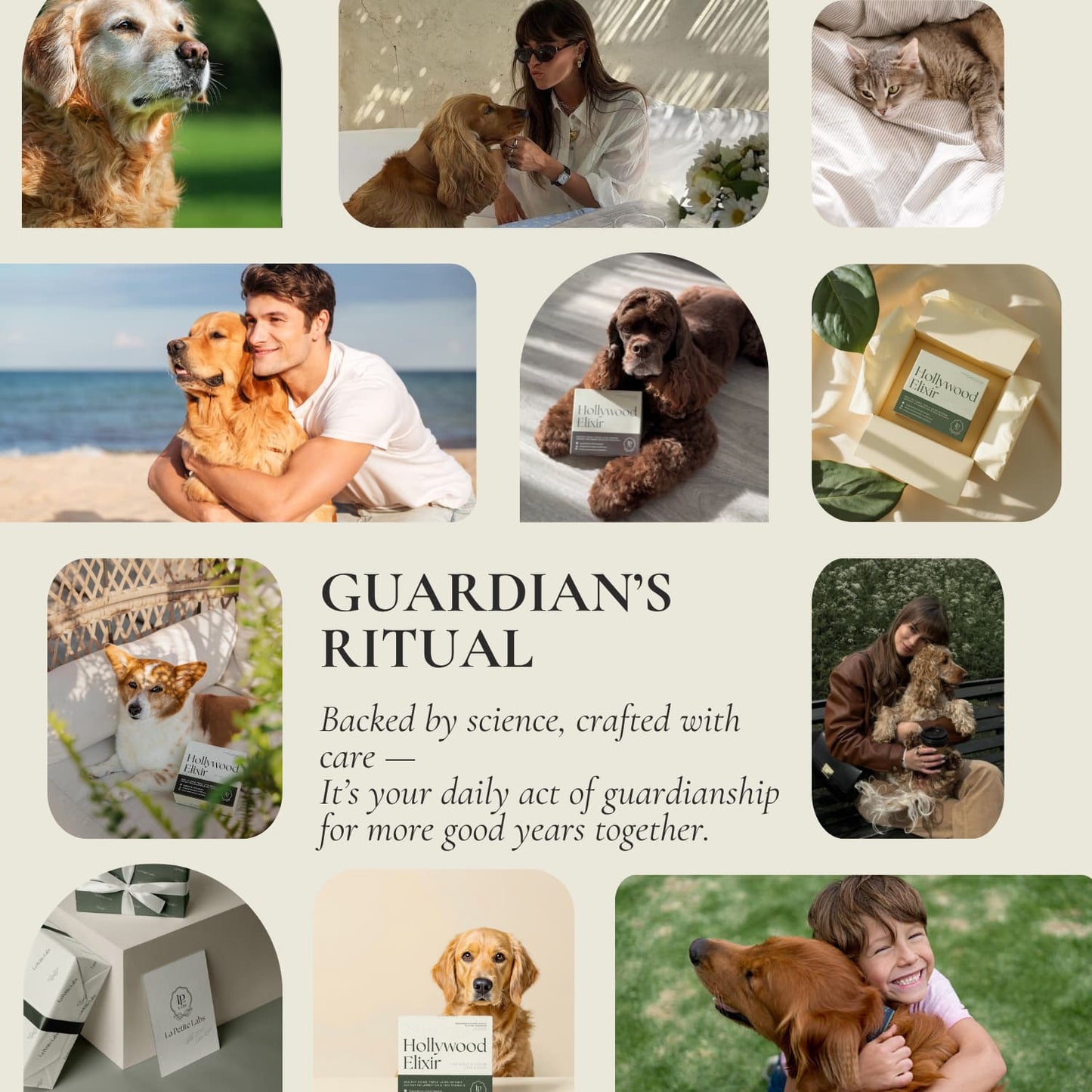
Carotenoids for Dogs – Inflammation, Skin, and Eye Support | La Petite Labs
Mechanisms, relationships, and cross-links for Carotenoids for Dogs
Carotenoids for Dogs — Abstract
Carotenoids are fat-soluble plant pigments that help quench singlet oxygen and buffer reactive oxygen species in tissues rich in lipids (retina, skin, cell membranes). In dogs, carotenoids such as lutein, zeaxanthin, and astaxanthin support visual function, skin comfort, and everyday antioxidant balance. See our Dog Antioxidant Supplement Guide for the broader context.
Scope & Definitions
Carotenoids are a class of lipophilic phytonutrients that integrate into membranes and macular pigment, where they absorb blue light, reduce lipid peroxidation, and help maintain cellular integrity. Dogs must obtain carotenoids from diet or supplements.
Synonyms & Aliases: Carotenoids Xanthophylls Carotenes Macular Pigment Carotenoids (MPC)
- Parent → Child (taxonomy): Antioxidants → Carotenoids → {Carotenes: β-carotene, lycopene} & {Xanthophylls: lutein, zeaxanthin, astaxanthin}
Mechanism Map
Pathways
- Singlet oxygen quenching → helps maintain retinal and skin lipid integrity.
- Blue-light filtration (lutein/zeaxanthin) → supports photoreceptor resilience.
- Membrane stabilization → buffers lipid peroxidation in high-PUFA tissues.
- Indirect redox signaling → intersects with endogenous systems like glutathione.
- Energy & recovery context → complements mitochondrial nutrients such as CoQ10 for dogs and NAD+ for dogs.
Nutrient Interactions
- Resveratrol → polyphenol that complements carotenoid antioxidant tone.
- Quercetin → supports balanced immune signaling alongside xanthophylls.
- Spirulina → adds phycocyanin and supportive micronutrients.
- Reishi → pairs immune modulation with antioxidant defense.
- Glutathione → intracellular recycler that works downstream of lipid shielding.
- CoQ10 → mitochondrial electron carrier; complements light-filtering in energy-hungry retina.
- Nicotinamide riboside → supports NAD+ pools for cellular repair.
- Astaxanthin → a marine xanthophyll with high singlet-oxygen quenching potential.
Species Notes
- Dogs absorb xanthophylls (lutein/zeaxanthin) that accumulate in the retina and skin.
- β-carotene conversion to vitamin A is limited and variable; carotenoids should be viewed primarily as antioxidant pigments rather than vitamin A sources.
- Because carotenoids are fat-soluble, giving with food that contains fat can improve bioavailability.
Evidence Snapshot
- Macular pigment carotenoids (lutein/zeaxanthin) help filter blue light and maintain retinal function.
- Astaxanthin supports oxidative balance in lipid-rich tissues and may aid skin comfort and recovery.
- Combining carotenoids with complementary antioxidants (e.g., glutathione, CoQ10) yields broader coverage across membranes and mitochondria.
• NIH ODS — Lutein & Zeaxanthin Fact Sheet (adjacent evidence): ods.od.nih.gov
• AVMA — General guidance on supplements & antioxidants (adjacent evidence): avma.org
Entity Relationship Table
| Entity | Type | Relationship | Link |
|---|---|---|---|
| Carotenoids | Ingredient Class | carotenoids → shield → lipid-rich tissues | Dog Antioxidant Guide |
| Lutein | Ingredient | lutein → filters → blue light in retina | Related antioxidant (quercetin) |
| Zeaxanthin | Ingredient | zeaxanthin → supports → photoreceptor resilience | Anti-Aging for Dogs |
| Astaxanthin | Ingredient | astaxanthin → quenches → singlet oxygen | Astaxanthin for Dogs |
| Glutathione | Process/Ingredient | carotenoids ↔ complement ↔ glutathione recycling | Glutathione for Dogs |
| NAD+ | Process | adequate NAD+ → supports → retinal energy needs | NAD+ for Dogs |
| CoQ10 | Ingredient | CoQ10 → complements → macular pigment needs | CoQ10 for Dogs |
| Resveratrol | Ingredient | resveratrol → pairs with → xanthophylls for broad antioxidant tone | Resveratrol for Dogs |
| Spirulina | Ingredient | spirulina → adds → accessory pigments & micronutrients | Spirulina for Dogs |
| Reishi | Ingredient | reishi → supports → balanced immune milieu | Reishi for Dogs |
| Carotenes | Subclass | carotenes → belong to → carotenoids | Antioxidant Overview |
| Xanthophylls | Subclass | xanthophylls → include → lutein, zeaxanthin, astaxanthin | Longevity Pillar |
Internal Link Hub
Pillars
Processes
- NAD+ for Dogs — carotenoids for dogs intersect with cellular energy needs.
Ingredients
- Glutathione for Dogs
- Nicotinamide Riboside for Dogs
- CoQ10 for Dogs
- Spirulina for Dogs
- Reishi for Dogs
- Resveratrol for Dogs
- Quercetin for Dogs
- Astaxanthin for Dogs
Guides
FAQ
What are carotenoids in dog nutrition?
Do dogs make carotenoids on their own?
Which tissues benefit most?
Do carotenoids work alone?
Is food fat important for absorption?
How long until I notice effects?
Are carotenoids the same as vitamin A?
Can they be paired with a daily system?
Glossary
- Carotenoids: Fat-soluble pigments that help quench singlet oxygen and stabilize membranes; important for retinal and skin wellness.
- Xanthophylls: Oxygenated carotenoids (e.g., lutein, zeaxanthin, astaxanthin) that concentrate in the eye and skin.
- Carotenes: Non-oxygenated carotenoids like β-carotene and lycopene; part of the carotenoid family.
- Astaxanthin: Marine-derived xanthophyll noted for potent singlet-oxygen quenching in lipid-rich tissues.
- Lutein: Macular pigment carotenoid that filters blue light and supports photoreceptors.
- Zeaxanthin: Partner to lutein; together they help maintain visual function under light stress.
- Reactive Oxygen Species (ROS): Chemically reactive oxygen byproducts; excess can stress lipids, proteins, and DNA.
- Lipid Peroxidation: Oxidative damage to fats in membranes; carotenoids help buffer this process.
- Blue Light: Short-wavelength light with higher energy; lutein/zeaxanthin help filter it in the retina.
- Bioavailability: Fraction of an ingested nutrient that reaches circulation/tissues; increased when fat-soluble nutrients are taken with food.
Product Context
- Supports visual comfort by filtering blue light (lutein/zeaxanthin).
- Helps maintain skin barrier tone by buffering lipid peroxidation.
- Pairs well with mitochondrial and recycling antioxidants for layered coverage.
